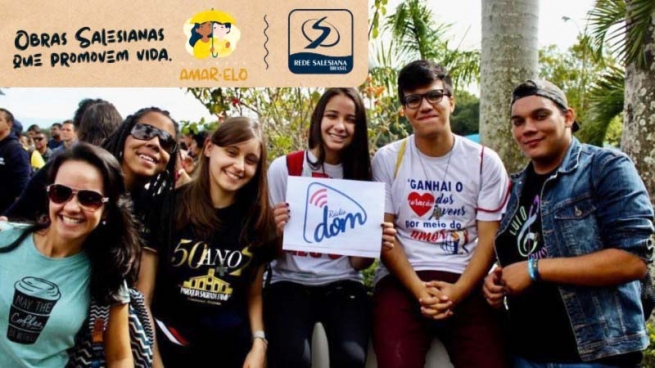The radio currently has six studios in two States. Of these, three are in detention units for young people in conflict with the law. With more than 45 volunteers, including speakers, journalists, technicians and planners, the broadcaster has a vast program that embraces formation, education, Salesianism, social life and music. Having the Salesian Province of Brazil-Sao Paulo as its promoter, it has become an element of contact with young people and allows the members of the Salesian Family and the sympathizers of Don Bosco to have access to information on social works, as well as topics relevant to marginalized young people.
The radio is currently growing and its web platform has reached over a million hits. Much appreciated for its programming and its social projects, it believes in and puts into practice the fundamental principles of online youth animation. In collaboration with Vatican Radio, it broadcasts the voice of the Pope, gives space to round tables on youth leadership, growth, evangelization and dignity and never forgets to take a look at the poor. And all this it does with and for young people.
Its social-oriented programming allows listeners to become aware of the needs of the community every day and offers a sense of community. The debates, symposia and partnerships with public youth organizations also intensify the depth of the topics covered and put all those who otherwise would have no voice on the agenda.
Also, together with the Salesian University Center of Sao Paulo (UNISAL), "Radio Dóm" curates a space on youth vulnerabilities where some young people are trained to work and to accompany young people in prison.
The most successful project of "Rádio Dom" continues to be the one that gave it life: communication education for young people in prison and interned in socio-educational institutions. The boys in prison, in fact, cannot appear via video, and if they did they would risk increasing the stigma their condition already often causes them. The radio, on the other hand, provides the ideal solution, giving them the opportunity to express themselves with respect for the dignity of every human being. From this project others were born which focused on this audience, which tries to show children and society that the crime that these young people may have committed does not really say who they are, does not sum them up and does not limit them.
For more information on Radio Dom or other Salesian social works throughout Brazil, visit the Union For Life (UPV) or download the UPV application available for Android and iOS.
Ronnaldh Oliveira, SDB, and the Communication Team of Rádio Dom


